Monarch Butterfly Danaus plexippus
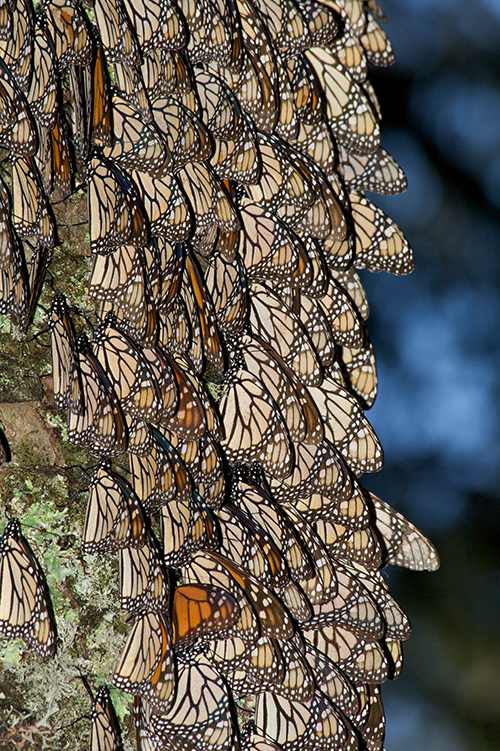
Photo courtesy of Court Whelan
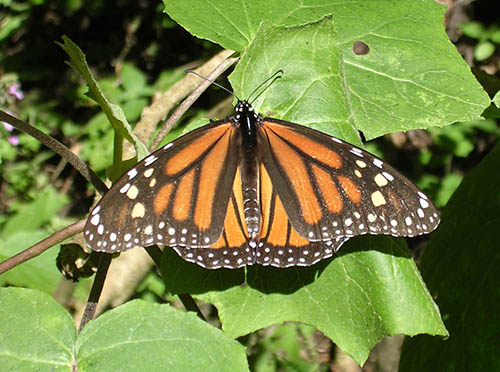 For many, Monarch Butterflies are a sign of fall as they ma
For many, Monarch Butterflies are a sign of fall as they ma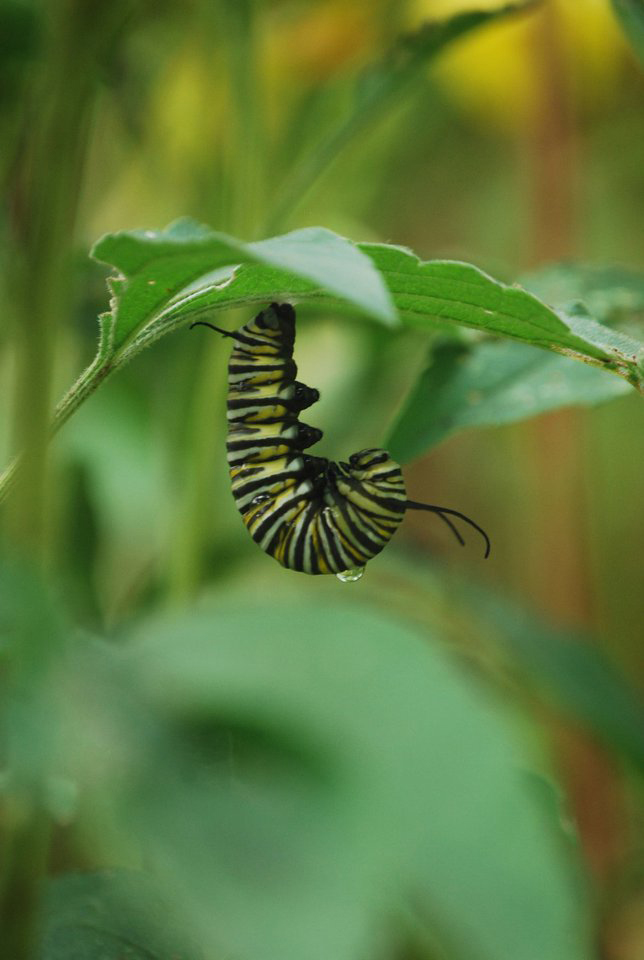 ke their journey south to overwinter. Monarch Butterflies are easy to recognize with their bright orange wings outlined in black. Their larval stage and chrysalis are also eye-catching: Caterpillars are striped with white, black, and yellow, and their chrysalis’ are mint green with gold spots.
ke their journey south to overwinter. Monarch Butterflies are easy to recognize with their bright orange wings outlined in black. Their larval stage and chrysalis are also eye-catching: Caterpillars are striped with white, black, and yellow, and their chrysalis’ are mint green with gold spots.
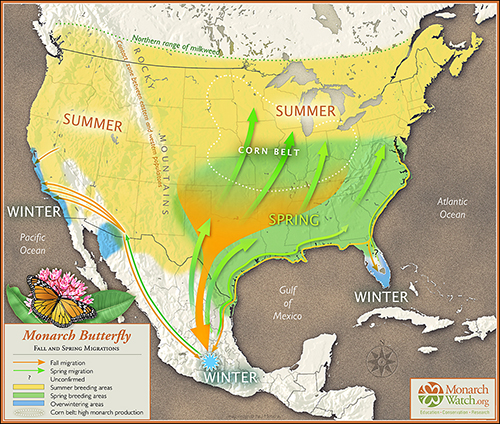 This year marked the 40th anniversary of the discovery of the Monarch’s largest wintering site in the Transvolcanic Mountains of Mexico. The majority of Monarch Butterflies embark on this migration to Mexico every year with some populations overwintering in California and Florida. It takes approximately four generations of Monarchs to complete the entire journey each year. The cycle begins in February and March when overwintering Monarchs come out of their winter torpor, mate, and deposit eggs. The next two generations of Monarchs only live two to six weeks. During that time, these generations mate, fly north, and deposit eggs. Only the final generation in this cycle will migrate south. Instinctively, these Monarchs know to travel south (although earlier generations flew north), and they will live six to eight months with some traveling over 1,000 miles to reach their overwintering sites.
This year marked the 40th anniversary of the discovery of the Monarch’s largest wintering site in the Transvolcanic Mountains of Mexico. The majority of Monarch Butterflies embark on this migration to Mexico every year with some populations overwintering in California and Florida. It takes approximately four generations of Monarchs to complete the entire journey each year. The cycle begins in February and March when overwintering Monarchs come out of their winter torpor, mate, and deposit eggs. The next two generations of Monarchs only live two to six weeks. During that time, these generations mate, fly north, and deposit eggs. Only the final generation in this cycle will migrate south. Instinctively, these Monarchs know to travel south (although earlier generations flew north), and they will live six to eight months with some traveling over 1,000 miles to reach their overwintering sites.
Conservation status continues to be reviewed as their populations dwindle. Loss of habitat and extreme weather are the largest threats to the overwintering populations in Mexico. In the United States, the decline of native milkweed (Asclepias), their host plant, has threatened breeding and larval success.
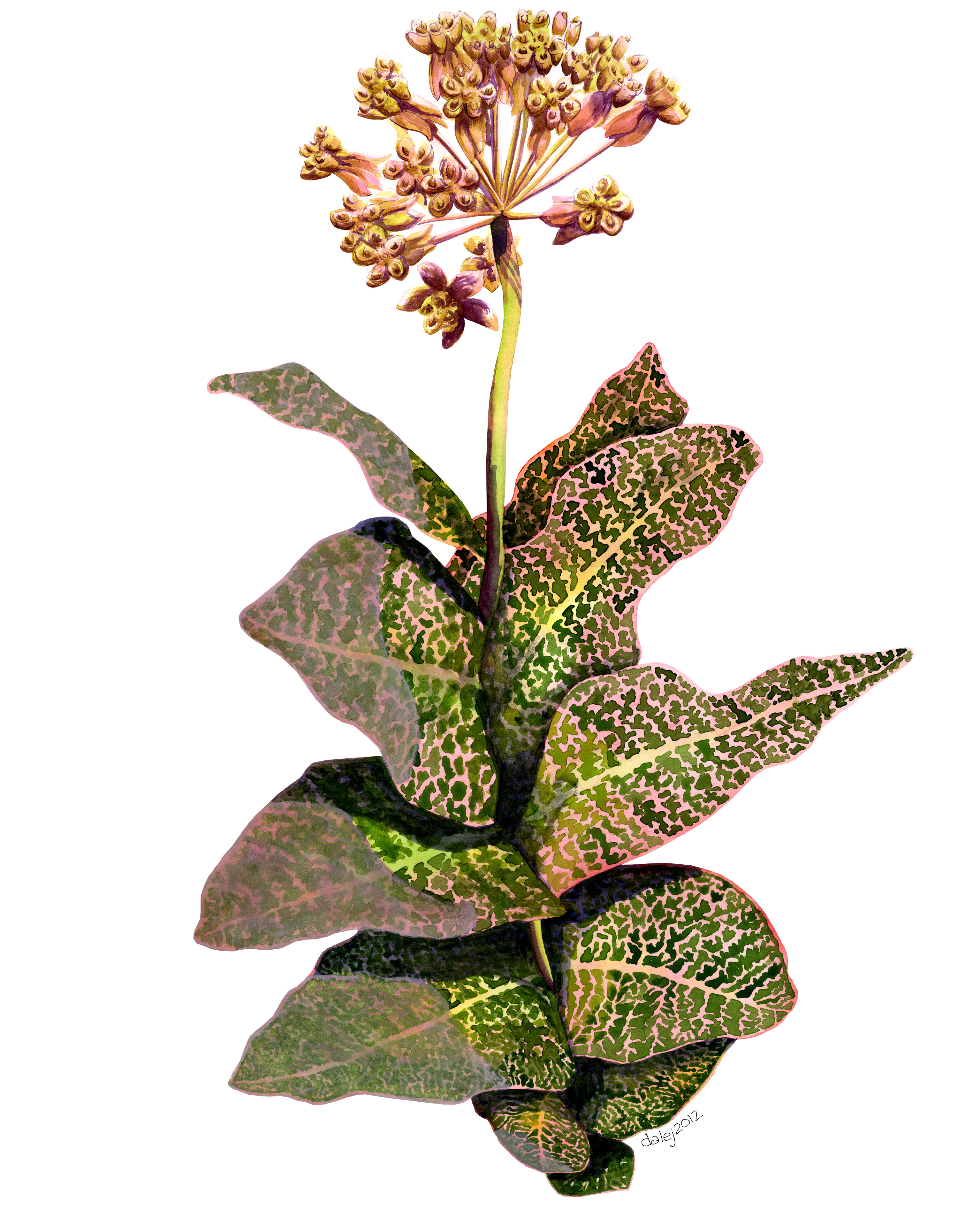
Milkweed illustration by Dale Johnson
Want to see all of our Species' Spotlights and receive iDigBio related news? Subscribe to our newsletter, The iDigBio Spotlight!
Want to learn more?
- View the specimen records for Monarch Butterflies in the iDigBio Portal.
- Learn more about Monarchs from the University of Florida’s Entomology and Nematology Department.
- Find out which species of milkweed you should plant in your backyard at MonarchWatch.org.
- Help scientists study Monarchs through several national USDA projects.
Additional Captions: The left image within the text was taken by Andrei Sourakov in Mexico. The right image was taken by Jillian Goodwin.The map was created by Paul Mirocha. Visit his blog post about Monarch migration and download a free milkweed poster.







